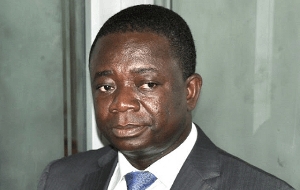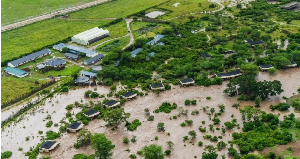Regional News of Tuesday, 11 November 2014
Source: GNA
KAIPTC holds maiden Responsibility to Protect Course
The Kofi Annan International Peacekeeping Training Centre (KAIPTC) in collaboration with the Danish Government and the Global Centre for Responsibility to Protect (GCR2P) on Monday opened a maiden course on the Responsibility to Protect (R2P).
The two-week pilot course brings together 30 participants made up of policy makers from government institutions, personnel from the security services; non-governmental organizations and representatives from the African Union and ECOWAS.
Participants would be taken through the foundations and evolution of R2P, its normative and legal frameworks.
Mr Thomas Kwasi Quartey, Deputy Minister of Foreign Affairs and Regional Integration, said “this pilot course is unique because it is the first of its kind in the world and is therefore both historical and a defining moment for future pursuits to halt mass atrocities that unfortunately, characterized modern day conflicts”.
He said in 1994, over a period of only 100 days, over 800,000 Rwandans were massacred, stating that the “genocide took place at a speed three times faster than that of the holocaust, and made it one of the most outrageous mass killings in the 20th century.
“It was most despicable because while these genocide killings were taking place, not in any obscure corner but in the full glare of the international media cameras, the international community looked on in stone silence and with reckless abandon”.
The Deputy Minister recounted that over a decade later, at the United Nations World Summit in 2005, world leaders made a historic commitment to take collective action in a timely and decisive manner should peaceful means be inadequate and national authorities manifestly fail to protect populations from genocide, war crimes and crimes against humanity.
“Almost a decade on, looking around the world today as the horrors of conflicts continue, the pledge of ‘never again’ remains relevant than ever,” he said.
“There is also the need to remember the lessons learned from the holocaust, the Rwandan genocide and the killings of Cambodia, Eastern Congo, Somalia and Darfur.
“There is also the consequences that would arise from our indifference and the impact such repeated indifference will have on humanity”.
He said the Africa Union in the Ezulwini Consensus of 2005, subscribed to the principle of R2P; and however, cautioned against misuse of the principle to undermine the sovereignty, independence and territorial integrity of states.
He said ECOWAS had committed itself to this principle through the formation of ECOMOG which intervened in Liberia in 1990 and later in Sierra Leone.
Mr Quartey said Ghana as co-chair of the R2P had from 2011 at the 66th UN General Assembly session co-hosted its meetings at the margins of the General Assembly.
He lauded KAIPTC, the Danish Government and GRC2P for the organization of R2P course.
Major General Obed Akwa, KAIPTC Commandant said “it is well known that after the Holocaust, the world promised it would ‘never again’ allow crimes such as the mass slaughter of civilians to take place, which however, has been broken several times”.
He said countries such as Cambodia, Rwanda, Bosnia, East Timor, Sudan, the Democratic Republic of Congo and many more had been scarred by horrific cases of genocide, war crimes, ethnic cleansing and crimes against humanity.
“The promise of ‘never again’ has gone unfulfilled again and again. The recognition of these enormous failures has given way to a new commitment – the R2P – a political framework to mobilize the international community to prevent and halt the commission of mass atrocity crimes,” he said.
He said states were the primary actors in domestic and international affairs and thus had the primary responsibility to protect its people; preventing mass atrocity crimes was better than intervening after the act had been committed.
The Commandant said capacities should be developed to avoid reaching the stage of committing atrocities and its attendant intervention and also the continuous need to build institutional capacity was critical to effectively handle the prevention and management war crimes, crimes against humanity and genocide.
Mrs. Margit Thomsen, Danish Ambassador to Ghana commended Ghana for being a shining example in Africa in the observing of R2P.
She said the world must make sure that no genocide or holocaust happens again in the history of mankind.
Dr. Simon Adams, GCR2P Executive Director said the UN charter emphasized on people and not governments, hence the need to ensure R2P is observed by all.











